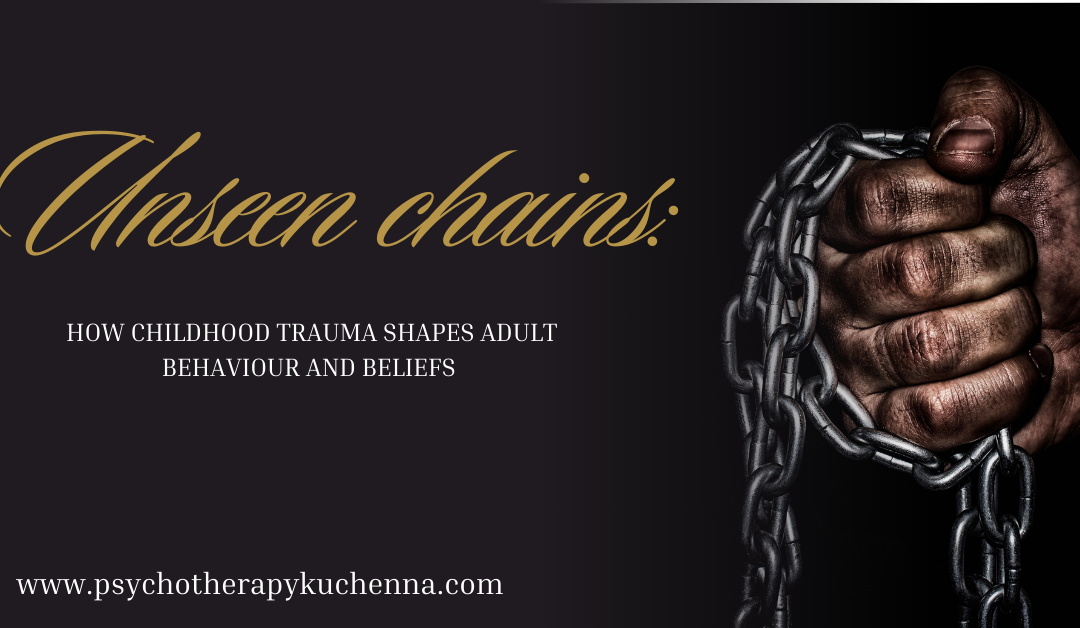Childhood is the foundation on which we build our lives. However, for those who experience trauma during these formative years, this foundation may carry invisible cracks. The effects of childhood trauma often extend far beyond the initial experiences, subtly shaping behaviour, beliefs, and relationships well into adulthood. Yet, many individuals remain unaware of how deeply these past events influence their present selves. This article explores how childhood trauma affects behaviour, common beliefs that arise from it, and why the connection between past and present often goes unrecognized.
Understanding Childhood Trauma
Childhood trauma includes any experience that overwhelms a child’s ability to cope, such as abuse, neglect, witnessing violence, or losing a loved one. The brain, still developing during childhood, responds to these overwhelming experiences by activating survival mechanisms. These early responses can become ingrained patterns of thought and behaviour, persisting long after the danger has passed.
Behaviors Rooted in Childhood Trauma
1. Hyper-vigilance or Anxiety
Individuals who grew up in unpredictable or threatening environments often develop a heightened sensitivity to potential dangers. This can manifest as chronic anxiety or an overreaction to minor stressors.
2. Avoidance and Withdrawal
Avoidance of social situations or emotionally charged topics is common. This behaviour serves as a defence mechanism to prevent reliving painful memories or facing potential rejection.
3. People-Pleasing Tendencies
Many trauma survivors learned early on that pleasing others kept them safe or earned them affection. As adults, they may struggle to set boundaries, fearing that saying “no” will lead to abandonment or conflict.
4. Anger or Aggression
For some, unprocessed trauma surfaces as anger or aggression. This can be a defence against vulnerability or an expression of long-repressed emotions.
5. Self-Sabotaging Behaviors
Patterns of procrastination, substance abuse, or toxic relationships often stem from feelings of unworthiness. These behaviours, though harmful, may feel familiar and reinforce negative self-perceptions.
Common Beliefs Shaped by Childhood Trauma
1. “I am not worthy of love or success.”
Negative self-beliefs are often rooted in experiences where a child’s needs are ignored or met with criticism.
2. “I must stay in control to be safe.”
Survivors of chaotic environments may develop a deep need for control, fearing that losing it will lead to disaster.
3. “The world is a dangerous place.”
Trauma survivors may view the world as inherently unsafe, leading to trust issues and difficulty forming close relationships.
4. “I must be perfect to be accepted.”
This belief often emerges from environments where love or acceptance is conditional, fostering a relentless pursuit of perfection.
Why the Connection to Childhood Trauma is Often Overlooked
1. Normalizing the Experience
For many, their traumatic experiences were their “normal.” Without a different frame of reference, they may not recognize the behaviours as unusual or maladaptive.
2. Memory Suppression
The mind may suppress or distort traumatic memories as a protective mechanism. As a result, individuals might not consciously associate their behaviour with past events.
3. Societal Stigma
Discussing childhood trauma remains taboo in many cultures. This stigma discourages open dialogue, leaving many unaware of the trauma’s lasting impact.
4. Focus on Symptoms, Not Causes
When seeking help, people often address symptoms like anxiety or addiction without exploring their root causes. Traditional treatments may overlook the deeper trauma driving these issues.
Moving Forward: Healing and Awareness
Recognizing the connection between childhood trauma and adult behaviours is the first step toward healing. Therapy, especially trauma-focused approaches can help individuals process past events and reframe negative beliefs.
Awareness and education are powerful tools. Understanding how early experiences shape us allows for self-compassion and fosters empathy for others. By shining a light on the unseen chains of childhood trauma, we can begin to break free and build healthier, more fulfilling lives.
with love,
Sylwia Kuchenna
Links to my Instagram, books, YouTube:

